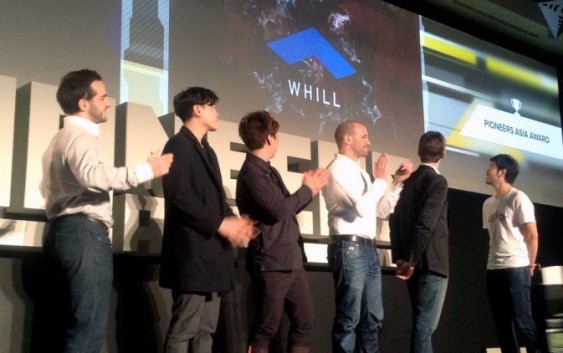TECHINASIA – March 25, 2016 – Pioneers Asia’s three day international startup event concluded yesterday with a pitch competition. Japan-born wheelchair alternative Whill took the top prize by “introducing an innovation into an unsexy market,” according to the judges.
Pioneers featured Japanese Taiko drumming, a bicycle performance by a BMX champion, traditional Noh theater streamed over 4K, and even a beautiful Japanese garden, but it was really all about the startups. Here are the five finalists selected from a group of 250 participating companies.
Top Prize / Challenger Award – Whill
Whill is a personal mobility company that makes motorized wheelchair alternatives. It was founded in 2012 and has been active in the Japanese startup scene for years.
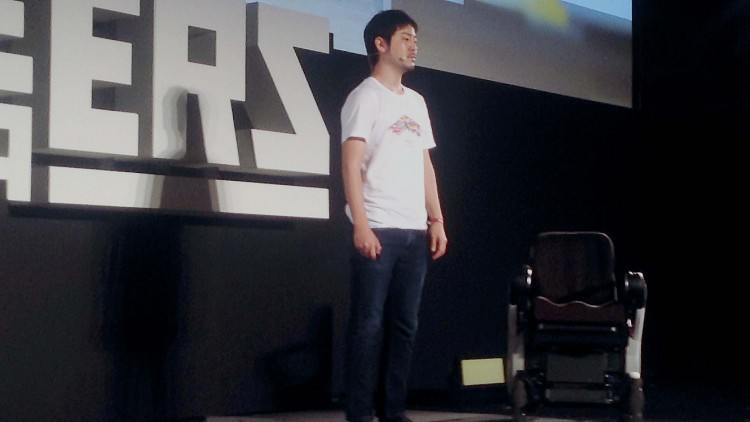
Co-founder and CEO Satoshi Sugie compared in his pitch the evolution of the telephone from 1932 until now with the basically unchanged wheelchair. A chance encounter with a man in a wheelchair who said, “I have even given up on going to the grocery store around the corner,” led the team to abandon a separate project and focus on personal mobility.
Whill came into the competition a day after announcing that it its new Model M was approved by the Food and Drug Administration (FDA) in the United States. This means that costs can now be covered by insurance and doctors can prescribe the Model M as a medical device.
As of now, 500 Model Ms have been sold and Whill already has 40 distribution partners in the United States. Satoshi hopes to focus more on marketing now that the company has FDA approval.
The Model M has location tracking, remote maintenance, and autonomous driving capabilities. Satoshi said that currently an eight hour charge will give a range of approximately 12 miles.
Satoshi estimates an approximate market size of US$3 billion for the powerchair and wheelchair market, but hopes to expand into more areas. The Model M costs roughly US$4,000 to produce now, but the company is hoping it will be able to bring that number down. The suggested retail price is US$14,000.
Whill received US$15,000 worth of consulting and legal fees, an article in the Nikkei Asian Review, Armani suits, and an investment meeting with Salesforce. Whill also received the Nomura Award, which gives it the chance to appear at the Investment Forum 2016 in Tokyo and the Investment Forum Asia 2016 in Singapore, both of which Nomura hosts.
MainTool
Maintool wants to use its smart strap to turn every watch into a smartwatch.
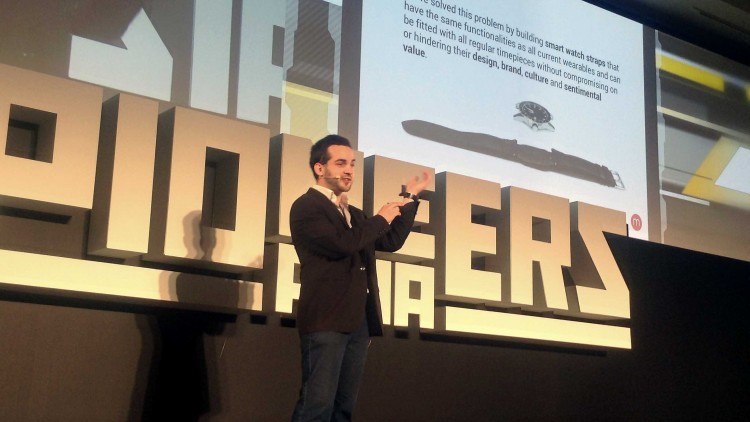
The strap has similar sensors to most smartwatches including a pedometer, temperature reader, and heart rate monitor. The battery supposedly lasts for over 20 days and data can be stored on the device for up to two weeks before syncing to the MainTool application.
MainTool is targeting watchmakers instead of consumers and wants to be sold with high end and midrange watches. During the pitch MainTool mentioned it is also trying crowdfunding, but mostly to put pressure on watch companies.
You can see a promotional video here.
Molcure
Molcure is another local Japanese company and it wants to speed the drug discovery process.
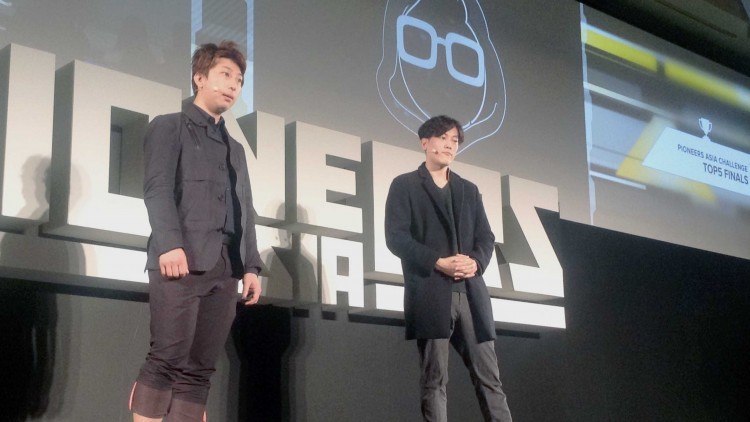
Co-founder and COO Yoichiro Hara says that there are still over 30,000 incurable diseases and that the research and development for a new drug takes at least US$1 billion dollars. The drug development process can take five to ten years with only 1 out of 20,000 drugs finally making it to the market.
Molcure’s automated hardware and software Abtracer uses big data to help identify antibodies 30 times faster, says Yoichiro. This will help people identify new drugs faster and shorten the time required for drug screening.
Yoichiro says they are currently working with research institutions and with some companies on short-term contracts but are hoping for long-term contracts with pharmaceutical companies. The entire system can be leased from Molcure for approximately US$1 million per year.
Molcure received a special prize before the main event from SMBC Venture Capital for an investment offer of approximately US$89,000. According to a comment after the event from Yoichiro, the terms for the investment are not decided yet.
Moneytree
Moneytree helps people get a better overview of their finances. It offers three main services of personal finance, business expense management, and Moneytree Pro for corporate accounts. The backend for each of these services is Moneytree’s MT Link.
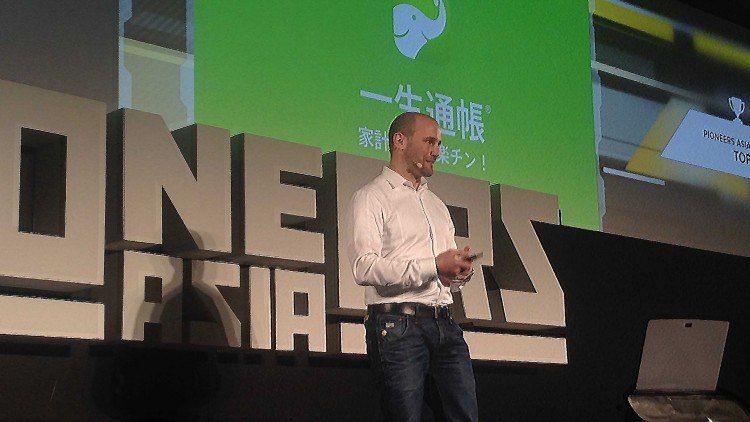
MT Link aggregates financial data from bank accounts, credit cards, loyalty cards, and electronic money and displays it in a single application. Founder and CEO Paul Chapman says that MT Link can get data from over 2,400 financial institutions with its API.
Last month Moneytree partnered with Japanese megabank Mizuho to send data from Moneytree to the bank. This was the first time a startup partnered with a megabank in Japan. Moneytree has also partnered with IBM and Mastercard according to Paul.
Currently the service is only offered in Japan but Paul hopes to expand abroad in the future, hinting at his home of Australia next.
Naio Technologies
Naio makes robots that pick weeds.
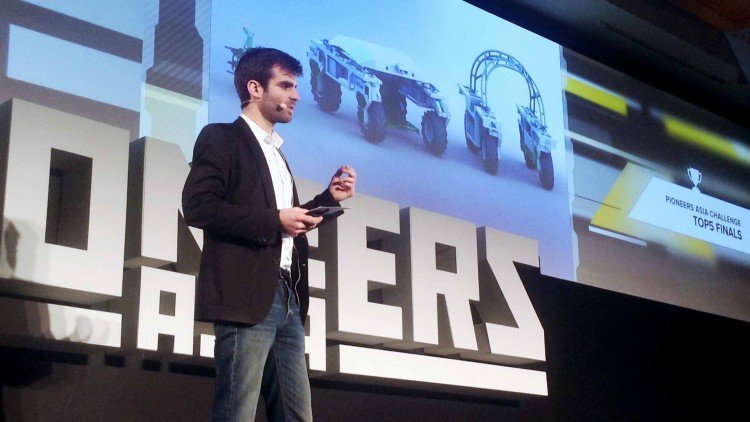
Oz by Naio Technologies is an aggricultural robot that uses cameras and laser sensors to detect plants. It is a completely autonomous weeding solution that can also be used to help farmers carry crops when harvesting.
Naio says it is already doing US$1 million in sales and just recently closed a US$3,350,000 round of investment which it will use to develop two more robots.
Currently Oz costs approximately US$8,000 to build and is being sold for US$21,000. Naio told judges that a farmer with a small plot of land (two-six hectares) can make their money back in three to five years but also emphasized the amount of time a farmer would save.

